1. Different senses of time and pace
For some people, the crisis of climate change is a new and uncomfortable feeling. But for people who have been living with the effects of climate change and other crises for a long time, this unbearable feeling of loss and damage is all too familiar. We can all learn a lot about how to respond to climate change and injustices when we embrace different ways of sensing time.
For example, Aboriginal and Torres Strait Islander Peoples experience violent colonial harm against their culture, families and Country and have had to adapt to cultural, political and environmental changes. Disabled and neurodivergent people often experience dehumanisation and exclusion when they cannot keep up with “normal” routines and schedules designed by and for able-bodied people. “Crip time” and other disability justice concepts and actions can help us find different ways and paces of moving, communicating, and enjoying life. For young people today, climate change is not a distant future threat, they already experience a precarious, uncertain and unsafe present and are already embracing different ways of living and coping.
Indigenous concepts of time
Aboriginal and Torres Strait Islander understandings of time are different from the Euro-centric and Western traditions brought to the Australian continent through colonisation. Time, for Aboriginal and Torres Strait Islander Peoples, is not linear but a dynamic, cyclical continuum where past, present, and future coexist. Aboriginal and Torres Strait Islander communities, among other First Nations, have a deep sense of time and a living memory of what it means to live well and sustainably with the land for over 65,000 years of social and environmental changes, including the last few hundred years of colonisation.
Because the past and future are not seen as separate from the present, decisions made today always consider previous and future generations of humans and non-humans. This is sometimes called the seventh-generation thinking as planning and decisions are made in the interests of seven generations or 175 years. This long-term way of thinking and working also honours the wisdom of past generations of ancestors whose actions and decisions enabled survival today. With this understanding of time, Aboriginal governance structures are quite different from the short-term election cycles of Western democracies.
For Aboriginal and Torres Strait Islander Peoples, time is also relational and rhythmic. It is deeply tied to Country, guided by the unique patterns of life in a particular place. For example, this means that life is governed by the seasons – not the four seasons of the Northern Hemisphere but the two, four, six or other number of seasons of different regions. This approach has enabled Aboriginal and Torres Strait Islander Peoples, among many other Indigenous communities, to practise sustainability longer than anyone. It ensures future generations of people and non-humans to adapt to changes so all living things have what they need to survive and thrive.
Community service organisations can better design. Community service organisations can look to Aboriginal and Torres Strait Islander Elders and Traditional Custodians who have ancient knowledge of caring for Country. Working together to embrace Indigenous concepts of time that promote long-term, relational and cyclical thinking, we can create more effective, sustainable, and place-based climate justice actions that benefit present and future generations.
Crip time
“Crip time” is a concept emerging from disabled people’s activism and disability justice movements. It challenges the conventional understanding of time, which is often structured around a standardised, capitalist model that assumes uniformity in people’s bodies and abilities. For people with disabilities, time can feel different, as tasks and distances may take longer or vary depending on their physical, mental, or sensory needs. Crip time recognises these differences and advocates for a more inclusive, flexible approach to time that respects individual experiences and capacities.
This concept is particularly relevant to climate justice, where it parallels the denial or misunderstanding of the time scale needed to address the climate crisis. Just as the standard model of time marginalises disabled people, society’s failure to acknowledge the urgency of climate action often delays meaningful progress. Both Crip time and the climate crisis denial highlight how ignoring diverse experiences limits our ability to respond in ways that address everyone’s needs.
By working to Crip time, community service organisations can work better with disabled people and carers who have different experiences of time and paces of engagement. This can enable effective and fair co-design and delivery of appropriate and accessible climate justice initiatives and actions. Failure to acknowledge and change the pace of how we work may lead to the continued exclusion of disabled people and their carers.
Present-day and future generations
Young people experience the climate crisis differently from older generations, as they are witnessing climate impacts firsthand, such as more frequent extreme weather events that disrupt their daily lives and communities. This exposure leads to a heightened sense of urgency and anxiety, with young people viewing the climate crisis as a defining challenge that requires transformative action to avoid catastrophic consequences. Young people are deeply concerned about how the crisis already shapes their present-day life and will continue to shape their future as they are disproportionately exposed to economic and environmental instability. They fear that inaction today will leave them to face the long-term impacts that will affect the cost of living, quality of life, and places they love.
Community service organisations (CSOs) need to understand that for young people, as with many other frontline communities, climate change is not a distant future threat. CSOs need to design services and initiatives with the understanding of how worsening climate chaos and injustices are impacting young people today and into the future.
Doing time differently with climate justice principles
These different understandings of time emphasise relational, intergenerational and procedural dimensions of justice:
- Relational justice: Climate justice recognises that all beings, human and non-human, are interconnected and depend on each other for survival. Since the dawn of time, humans have evolved with the world and have a vital role in caring for Country and in return are cared for by Country. This understanding is central to relational Lore that Aboriginal and Torres Strait Islander Peoples have practised for millennia.
- Intergenerational Justice: Climate justice considers long-term effects of decisions and actions today and aims to ensure present and future generations of people and all living beings have what they need to survive. Climate justice also learns from and honours ancient and continuing wisdom that has enabled collective survival and care.
- Procedural justice: Climate justice demands that the timelines of many institutions and organisations change to accommodate different ways of being and paces of working to enable inclusive and safe participation of diverse communities and peoples. Climate justice ensures decisions and actions for climate justice are timely but not at the expense of lived experience participation, community engagement and relationship building.
2. Moving at the pace of trust
Building relationships and trust for climate justice is a process that requires time, patience, and an intentional commitment to non-extractive practices. It’s essential to approach this work with the understanding that relationships are reciprocal and trust is built through shared responsibility, respect, and a deep willingness to listen and learn. Unlike extractive approaches, where resources or knowledge are taken without giving back, true collaboration in the context of climate justice values the contributions of all parties equally. This means recognising the importance of not only sharing knowledge but also respecting and honouring diverse wisdom, particularly the wisdom of Aboriginal and Torres Strait Islander Peoples, whose cultural understandings of time and relationships guide sustainable practices. Building collective action through this process requires constant reflection and effort to ensure that the relationship is grounded in mutual care, where both short-term and long-term needs are considered. Through this approach, we honour both the land and the relationships that sustain us, fostering resilience that is inclusive and non-extractive in nature.
A call to reimagine time in climate justice
For some people, the crisis of climate change is a new and uncomfortable feeling. One may think, “We need to radically transform our society fast without delay” or “we don’t have time for consultation, we need to implement this right away”. Understandably, one may feel fear and uncertainty about how our lives and homes might change and want to do anything, at any cost, to maintain business as usual.
However, this kind of thinking often gives way to action where “the ends justify the means”. The ends being a safe and comfortable lifestyle and growing economy (for some), and the means are acceptable even if they continue to harm people and nature (elsewhere). However, climate justice is about ensuring the means of restoring a safe and habitable planet are fair and inclusive for all, and this means reimagining a good life, recreating systems and structures, and enacting new as well as old ways of doing things.
Understanding time as cyclical and relational invites us to reconsider climate justice through a holistic lens—one that honours the wisdom of those who have stewarded the land for millennia. It reminds us that climate justice is a commitment to sustaining life, culture, and Country through deep respect for the past and care for the future, which are all part of the present.
This reimagining of time offers a pathway to resilience grounded in justice, care, and the enduring strength of Aboriginal and Torres Strait Islander knowledges.
Read more
‘All things will outlast us’: how the Indigenous concept of deep time helps us understand environmental destruction (The Conservation)
Currents//Crip Time & Climate Crisis
How climate action can benefit from Indigenous tradition of ‘7th-generation decision-making’

